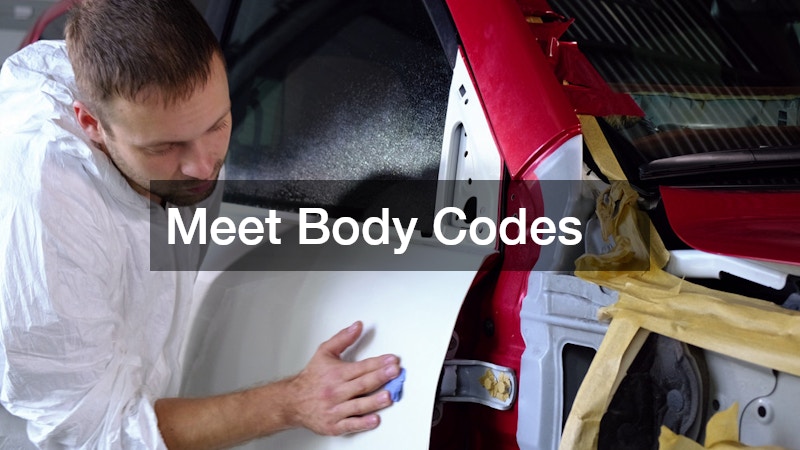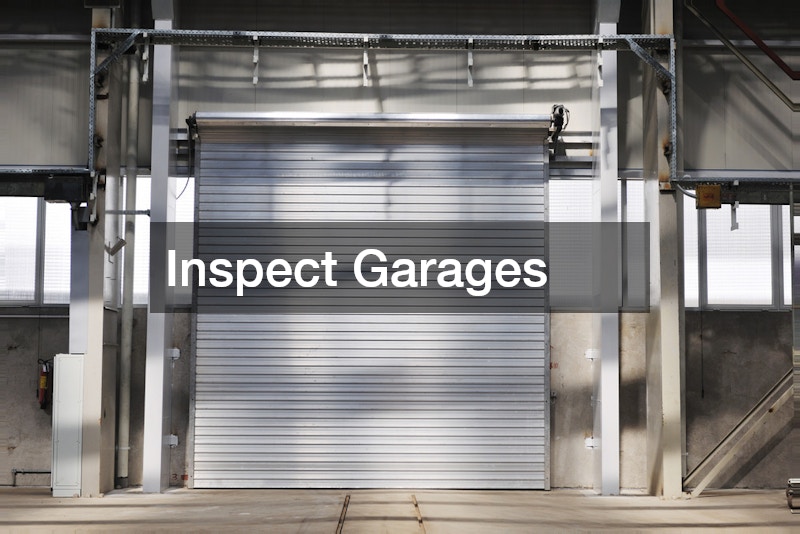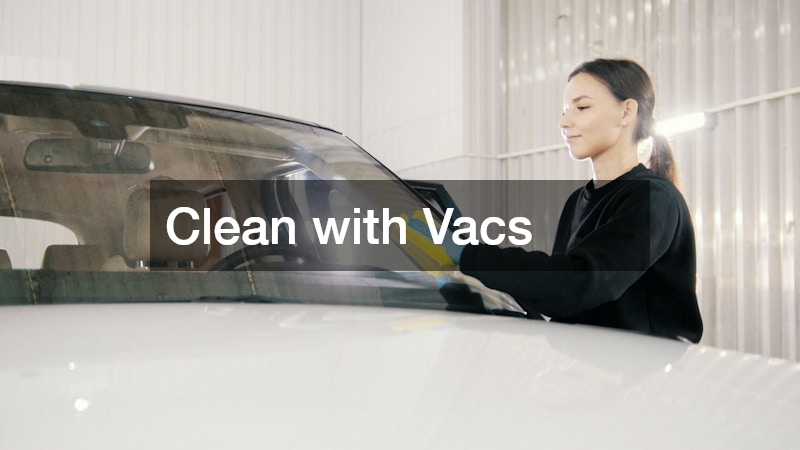The automotive repair industry is built on precision, trust, and adherence to strict regulations. Mechanics and associated service providers must navigate a complex framework of rules designed to ensure safety, quality, and reliability. From brake systems to towing services, compliance governs nearly every aspect of automotive maintenance and repair. While these regulations may seem extensive, they are essential for protecting customers, the environment, and the broader transportation system. By following proper standards and maintaining rigorous practices, mechanics not only deliver high-quality service but also build credibility and consumer confidence.
Modern vehicles are technologically advanced, integrating electronics, safety features, and environmentally efficient systems. As vehicles evolve, mechanics must adapt, staying informed about regulatory changes while maintaining the highest standards of workmanship. Compliance is not just a legal obligation—it is a mark of professionalism. Whether it’s managing hazardous materials, documenting repairs, or sourcing quality parts, the industry relies on structured processes that guarantee safe and effective outcomes. Beyond the repair bays, related businesses like towing services, truck rentals, and even garage door companies intersect with these regulations, reinforcing a culture of quality and responsibility.
Follow Brake Rules
Brake systems are among the most critical components of any vehicle, making strict compliance essential. Brake repair shops must follow standardized procedures and safety guidelines to ensure every repair maintains stopping power, performance, and reliability. Industry regulations cover aspects like fluid handling, rotor and pad specifications, and testing protocols. A mechanic’s attention to detail in this area directly affects driver safety and public confidence, highlighting the importance of consistent adherence to rules.
Specifically, brake repair shops often implement rigorous inspection routines and document every service performed. Using certified equipment and high-quality components ensures that each brake replacement or adjustment meets manufacturer and legal standards. Technicians are trained to identify worn parts, detect leaks, and assess hydraulic systems while minimizing risk to both themselves and vehicle owners. By combining regulatory knowledge with hands-on expertise, brake repair shops maintain operational excellence while safeguarding the roads.
Meet Body Codes

Auto body repair involves restoring a vehicle’s structural integrity and appearance after collisions or damage. Meeting strict safety and aesthetic codes is crucial to protect passengers and ensure the vehicle performs as intended. Regulations govern the use of replacement panels, paint materials, and welding procedures. Compliance not only ensures the quality of repair but also prevents future mechanical issues or safety hazards that could arise from substandard work. Adhering to these standards also helps auto body shops maintain certifications and meet insurance requirements, which are essential for credibility and customer trust. Moreover, proper compliance supports environmental responsibility by regulating the disposal of paints, solvents, and other hazardous materials used in repairs. Following established body codes also allows shops to document repairs accurately, providing proof of quality and safety in case of legal or warranty inquiries. Ultimately, strict adherence to codes reinforces a culture of professionalism, safety, and precision across the auto body repair industry.
In practice, auto body repair facilities integrate safety inspections and quality checks into their workflow. Technicians are trained to measure frame alignment, verify paint adhesion, and replace damaged panels according to manufacturer specifications. By combining precision craftsmanship with regulatory compliance, auto body repair shops provide vehicles that look and perform as safely as they did before the accident, ensuring customer satisfaction and long-term reliability. Additionally, these shops often use advanced diagnostic and imaging tools to assess hidden damage, ensuring that structural and mechanical integrity is fully restored. Continuous training programs for staff keep technicians updated on new materials, repair methods, and safety standards. By incorporating rigorous quality checks at every stage, auto body repair facilities minimize errors and improve efficiency, ultimately delivering safer and more durable results for customers.
Check Car Parts
Car parts form the foundation of any repair, and ensuring their quality is a critical aspect of compliance. Mechanics must source, verify, and install components that meet manufacturer specifications and safety standards. Faulty or substandard parts can compromise a vehicle’s performance, safety, and even regulatory compliance. Whether it’s brakes, engines, or electrical components, proper parts management is essential for maintaining operational standards.
Mechanics take specific steps to check car parts before installation. This may include verifying serial numbers, checking for manufacturer recalls, and inspecting components for defects or wear. By using only approved and tested parts, technicians minimize the risk of malfunction and maintain vehicle reliability. Proper documentation of parts used in repairs also supports transparency and ensures accountability for both the shop and the customer.
Verify Used Cars

Purchasing or servicing used vehicles carries unique regulatory and safety considerations. Local used car services must comply with inspection standards, disclose vehicle history, and ensure all systems meet operational requirements. Failure to verify a vehicle’s condition can result in safety hazards and legal complications, emphasizing the importance of compliance and thorough evaluation. Proper verification also protects buyers from unexpected repair costs and helps maintain the reputation of the dealership or service provider.
Specifically, local used car services often conduct comprehensive inspections, checking brakes, lights, emissions systems, and structural integrity. They also review previous repair records and verify that any replacements meet regulatory standards. By adhering to these protocols, these businesses provide customers with confidence, ensuring that every used car is safe, reliable, and legally compliant before it leaves the lot. Additionally, detailed inspections can uncover hidden issues that might affect resale value or long-term performance, allowing dealers to address problems proactively. These services also often include test drives and diagnostic scans to confirm that mechanical and electronic systems are functioning correctly. By maintaining thorough documentation of inspections and repairs, local used car services enhance transparency and protect both themselves and their customers from potential disputes. Ultimately, these practices reinforce trust and demonstrate a commitment to safety, reliability, and industry standards.
Regulate Towing
Towing services are essential for removing disabled or unsafe vehicles from roads, making regulation and compliance critical. These businesses must follow licensing requirements, vehicle handling standards, and safety protocols. Ensuring compliance protects drivers, other motorists, and tow operators, maintaining public safety and operational integrity.
In practice, towing services implement detailed safety procedures, such as properly securing vehicles during transport and maintaining well-inspected tow trucks. Technicians receive training in load distribution, vehicle lifting techniques, and roadside safety compliance. By meeting regulatory requirements, towing services ensure vehicles are transported safely while minimizing risk and liability.
Inspect Garages

Even businesses indirectly connected to automotive services, like garage door companies, face regulatory considerations. Ensuring that garage installations meet safety standards prevents accidents and supports overall workplace compliance. Proper inspections and maintenance also protect clients from potential hazards related to mechanical failures or improper installation.
Specifically, garage door companies follow guidelines for installation, operational testing, and safety inspections. Technicians verify alignment, balance, and sensor functionality, ensuring doors operate smoothly without risk to users. By prioritizing compliance and quality, these companies contribute to safer environments for vehicle storage and overall customer satisfaction.
Manage Waste
Waste management is a critical component of compliance in the automotive and repair industries. Proper disposal of hazardous materials like oils, fluids, and scrap metals is not only environmentally responsible but also legally mandated. Dumpster rentals play a key role in safely collecting and removing waste from repair facilities. Efficient waste management also helps shops reduce clutter, prevent accidents, and maintain a professional appearance, which reflects positively on their reputation and customer trust.
Specifically, shops coordinate with dumpster rental providers to separate recyclable materials, hazardous waste, and general trash. These rentals ensure proper containment, reducing environmental impact and avoiding regulatory fines. By managing waste efficiently, repair shops maintain clean, safe workspaces while fulfilling legal obligations and supporting sustainability initiatives. Additionally, many shops track and document their waste disposal practices to meet environmental reporting requirements, ensuring accountability and transparency. Collaborating with reliable dumpster rental services allows facilities to adapt to changing regulations and handle increasing volumes of waste as operations grow. Proper segregation of materials also enables recycling and resource recovery, further contributing to environmentally responsible business practices. Ultimately, effective waste management is not only a regulatory necessity but a strategic practice that enhances operational efficiency and community stewardship.
Clean with Vacs

Maintaining a clean workspace is a key element of quality control and compliance. Central vacuums and industrial cleaning systems help mechanics manage dust, metal shavings, and debris, preventing contamination and improving safety. Clean environments support both employee health and regulatory compliance.
Specifically, central vacuums allow technicians to quickly remove debris from floors, workbenches, and engine bays. Regular use reduces the risk of slips, contaminations, and equipment malfunctions. By integrating cleaning protocols with daily operations, repair shops create safer environments that comply with occupational safety standards.
Maintain Trucks
Truck rental companies must maintain their fleets to meet regulatory and safety standards. Regular maintenance ensures vehicles are roadworthy, reliable, and legally compliant. Preventive inspections, repairs, and documentation are critical for operational efficiency and customer satisfaction.
Specifically, truck rental operators schedule routine checks on brakes, engines, and suspension systems. Any repairs or replacements use certified parts to meet manufacturer and safety standards. By maintaining compliance, rental companies provide safe, dependable vehicles while avoiding regulatory penalties and operational disruptions.
Support Towing
A local towing company plays a vital role in emergency vehicle recovery, making regulatory adherence critical. Compliance ensures that tows are conducted safely, legally, and efficiently, protecting drivers, operators, and third parties. Standards cover licensing, equipment use, and procedural protocols. Following these regulations also minimizes liability risks for the company and builds public trust in their services, reinforcing their reputation within the community.
In practice, local towing companies train drivers on proper towing techniques, weight distribution, and roadside safety measures. They regularly inspect tow trucks, secure vehicles according to regulations, and maintain accurate service records. This combination of operational diligence and regulatory compliance ensures that local towing companies can respond effectively while maintaining high service quality. Additionally, many companies implement tracking and monitoring systems to manage fleet performance and ensure timely responses. By maintaining up-to-date certifications and safety equipment, towing companies can handle a wide range of vehicles, from standard cars to commercial trucks, without compromising safety. Effective communication with customers and law enforcement during tows further supports compliance and operational transparency. Ultimately, these practices allow a local towing company to provide reliable, professional service while prioritizing the safety of everyone on the road.
Mechanics and related service providers operate in a highly regulated environment designed to protect customers, employees, and the public. From brake repair shops and auto body repair facilities to towing services, truck rentals, and garage door companies, compliance is critical at every level. Regulations act as both a framework and a safeguard, ensuring that every repair, replacement, and service follows proven standards. Proper use of quality car parts, meticulous inspections, waste management through dumpster rentals, and clean, organized workspaces with central vacuums all contribute to operational excellence and minimize risks.
Beyond day-to-day operations, regulatory adherence reflects a broader commitment to safety, professionalism, and ethical business practices. Mechanics who stay up to date on evolving standards are better equipped to handle the technological advancements in modern vehicles, from electronic braking systems to advanced driver-assistance features. Towing services, truck rental companies, and even peripheral businesses like garage door companies play a role in maintaining this ecosystem, demonstrating that compliance is not limited to the repair bay—it spans the entire automotive support network.
Additionally, these practices build customer trust and industry credibility. Vehicle owners can drive with confidence knowing that repairs and maintenance were conducted under strict safety protocols using approved components. Proper documentation, consistent inspections, and transparent service practices further reinforce reliability and accountability. In turn, communities benefit from safer roads, reduced environmental impact, and well-maintained vehicles that perform as intended.
Ultimately, adherence to regulations and meticulous repair practices ensures the long-term sustainability and reputation of the automotive industry. It is not just about meeting legal requirements; it is about cultivating a culture of excellence where every professional—from mechanics to towing operators—contributes to the safety, functionality, and longevity of vehicles. By combining regulatory knowledge with skilled craftsmanship, service providers uphold high standards that protect the public, enhance customer confidence, and support the continued evolution of a complex, essential industry.




